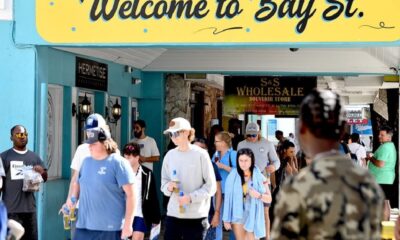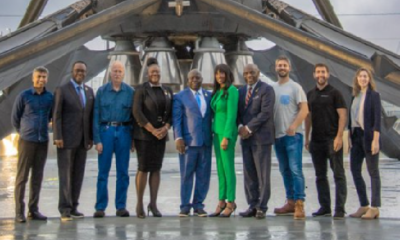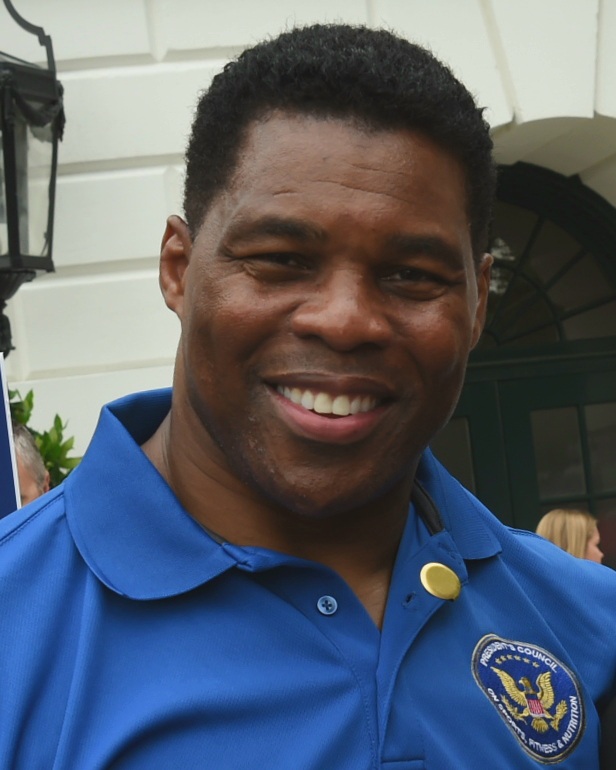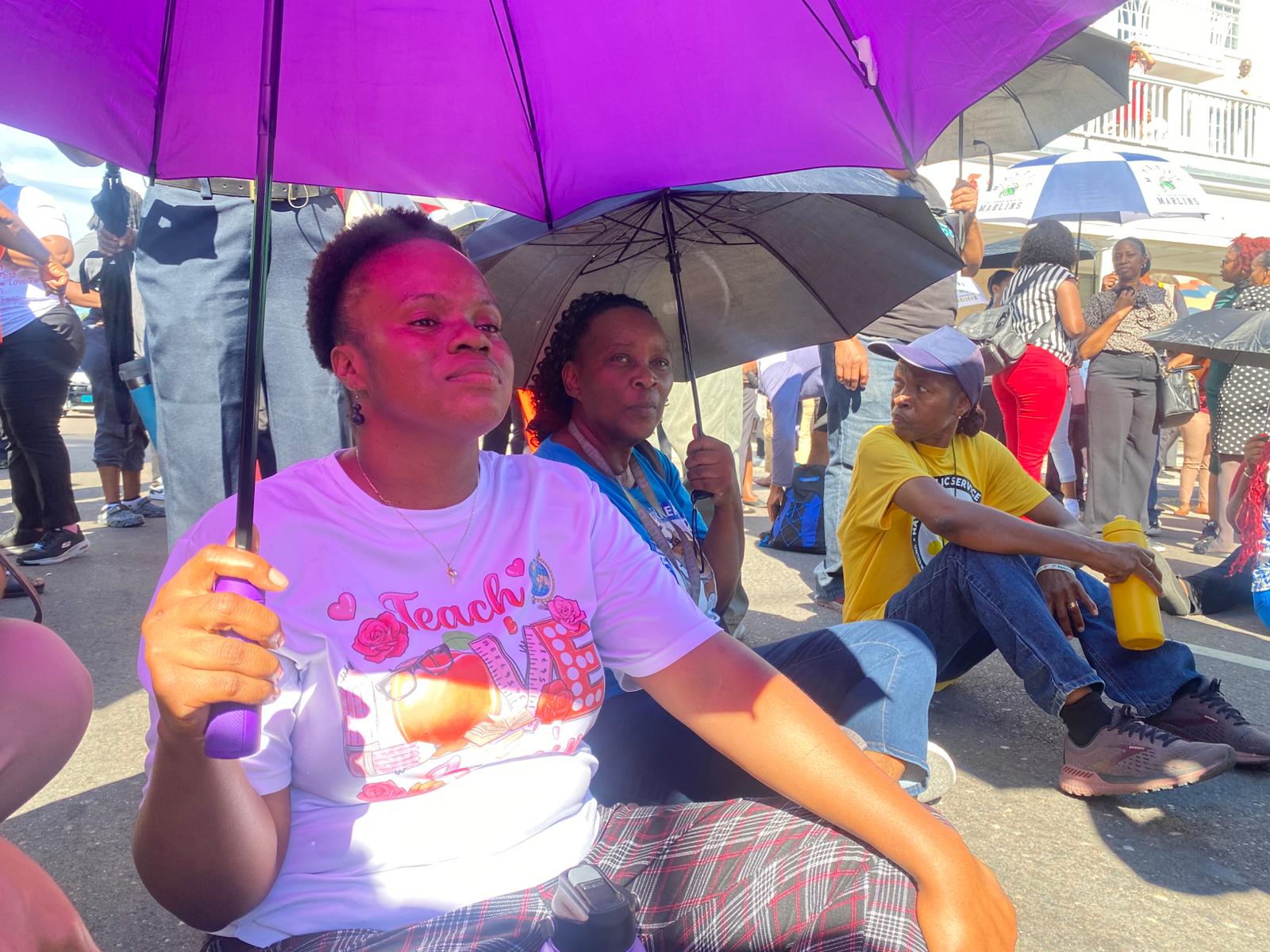#The Bahamas, March 28, 2022 –
Good afternoon, Ladies and gentlemen.
- Cabinet & Parliamentary Colleagues
- Executives of the DTP
- MOTIA Executives
- Members of the RBPF
I have invited you here this morning to seek common ground and to share with you the vison that the Davis-Cooper administration has for Downtown, Nassau. I come in peace.
Last week in the House of Assembly I voiced my displeasure about the state of Downtown, Nassau and I called it an embarrassment. And I know that many of you feel the same way. As an owner of property Downtown myself, I am intimately familiar with the challenges facing downtown as well as the progress, slow though it may be, that has been made.
Successive governments and the Downtown Nassau Partnership have worked in tandem over the years to try and transform the city center into what we now have. But the time for incremental change has come and gone.
We have seen progress in the refinishing of sidewalks, the investment in art on abandoned buildings and a focus on a police presence during the daytime hours. But the fact remains that the private sector is not redeveloping downtown rapidly, and indeed often standing in the way of progress.
For years we have had incentives for development downtown, and while that has borne some fruit, there is no question that the growth of downtown pales in comparison with the escalating number of cruise ship passengers who are brought to the Port of Nassau. Now we stand on the cusp of something new.
There is more than $200 million being invested in the new port that see it become one of the nicest, most modern ports in the region. The expansion of cruise ship berths and the loosening of restrictions on cruise ship occupancy means that we could see days with more than 20,000 cruise ship visitors brought to our shores multiple times per week. The difficulty has become getting them off the boats and to spend money downtown.
In addition that the port, we have the United States investing $300 million in a state of the art embassy that will change the landscape of Shirley Street and East Street.
In addition to that, we have a new Central Bank building that will cost well over $100 million that will begin construction soon and will further transform downtown.
In addition to that, the government of The Bahamas intends to construct a new Cabinet building downtown before the end of this term in government.
We are looking at over $700 million in investment into the downtown area in the next few years alone. Add to that The Pointe, and we would be looking at close to a billion dollars in investment. However, this will still not be enough to transform one of the busiest ports of entry in the region. Our tourism is rebounding strongly. Despite our challenges we still consider ourselves the leaders in the region.
The vibrancy of downtown should be the story our visitors tell to their friends and family when they return home. It should be a must visit destination in the Caribbean that serve as the bridge between Atlantis and Baha Mar, two of the most famous and meticulously constructed resorts in the world.
Downtown should be a memorable, authentic and safe journey stretching west to Arawak Cay, which is also being targeted for redevelopment, all the way east to Potter’s Cay Dock, also on the government’s drawing board for redevelopment. Yet it is still “on the drawing board”. Just this past weekend we had six ships in port, on a single day.
There were thousands of guests here and I often hear taxi drivers and vendors tell me how embarrassed they are to have tourists walk past Victoria Avenue going east to see the raft of abandoned buildings, overgrown spaces and desolate areas that scream for guests to speed past as opposed to enjoying the local fare.
It is the one area we get consistent complaints about.
It is poorly maintained and not adequately managed.
It was thought that moving the various waterfront ports would spur development of living spaces, a boardwalk, restaurants and shops, but that dream has stalled.
I have often heard that buildings that are neither pleasing to the eye nor functional to the city are protected as historical sites, and that may require laws being amended. I am told that outdated building covenants that limit the height of structures are also an impediment. I foreshadow that, that will require adjustment as well.
But given what we have seen with the The Pointe and with other buildings, we can clearly see that exceptions can be made in the greater move toward progress.
As far as our vagrancy issues downtown, those are being addressed by the police and through amendments to the Mental Health Act that will be coming. Harassment by those who may be mentally ill and/or have substance abuse issues is not something Bahamians or visitors desire. And we certainly do not want to tell the world that we allow people who may be a danger to themselves and others exist without help outside the gaze of a government mandated to provide order. We will get them compassionate care in a safe place. Bay Street is not that place.
I addition to a cleaner downtown, we also want downtown with spaces for small businesses and spaces for larger businesses.
The Small Business Development Centre and the Tourism Development Corporation are already being positioned to aid in this transformation. We plan to make certain that Nassau Cruise Port has a transparent process for engaging Bahamian entrepreneurs to operate and have ample opportunity to experience the coming economic growth.
We plan to establish business incubation centers east of Bay Street with shared office spaces like the Incudesk model as well as a high-end authentically Bahamian marketplace.
In the House, I announced a plan to work with the Ministry of Works, the police, the Office of the Attorney General and the Office of the Prime Minister to tackle these issues head-on. We will have a collaborative inter-ministerial approach. I also pledged to meet with you to discuss the way forward.
I want to be clear that though I seek the way forward to be one of mutually beneficial partnership, the thrust of this administration is first and foremost progress. And we are not willing to sacrifice progress pursuing partnerships that will not bear fruit. There is no chance that we allow the status quo to remain. Always, we will try to work together to move our nation forward. But governments have a responsibility to act in the national interest, even if that is not to the liking of a few.
There are multiple tools in the government’s arsenal to address compliance, but our first tool will always be diplomacy. And what is good for downtown is good for the economy of The Bahamas. Downtown is historic and its parameters well defined in the law. A raft of legislation exists in the form of concessions to aid this redevelopment. As I said, there is no need to reinvent the wheel.
We have had multiple studies on the redevelopment of downtown, and the government will also engage the public for ideas. We will implement a sustained plan that will out last me as Minister and beyond the 5-year political cycle. But consensus among property is not required for the government to lead the way forward. Our city center is no longer a hub for merchant ports. And it is no longer the epicenter of retail commerce it once was. But the fact remains that there is money to be made downtown.
For artists and artisans, for those directly in the tourism business, for existing property owners and many, many others. If you are not interested in being in business in the downtown area, this administration fully understands that. But we want to work together. Therefore, this is why I make this call to action. But disinterest cannot translate into inaction.
If we cannot figure out how to entertain and attract millions of visitors to spend on their vacations with a safe, diverse, dynamic and varied experience that changes and grows more interesting and more inviting over time, then we do not understand the business that we are in.
Downtown needs to become the calling card of The Bahamas, not continue to be a point of national shame. There is a sense of urgency in implementing the action plans outlined in our Blue Print for Change. It’s our commitment to you, as we govern on behalf of all.
As Deputy Prime Minister and Minister of Tourism, Investments and Aviation, I am daily confronted with the issues: maintaining the infrastructure, Cleaning Streets and sidewalks, Improved Signage, Addressing Poor Lighting, The Enhancement and enforcement of penal code as they relate to loitering, solicitation, illegal vendors, and illicit activities. The Government intends to do its part. We will apply existing laws to manage downtown and introduce new ones where necessary to have it restored, kept clean and provide a unique experience for our visitors and Bahamians.
Government will look at work with the DNP to establish a statutorily empowered PPP entity to manage downtown. We have been meeting with Cruise Line Partners to strongly emphasize the imperative to model exceptional partnerships to increase their calls on the Port of Nassau, incentivize more passengers to come off vessels, work with the TDC to enhance and support our tours and local offerings, which will largely result in increased visitor spend on shore and on Bay Street. They have given us their word.
We need you to repair your buildings and paint them. Revamp your store fronts. Ensure the removal of garbage. Adhere to signage guidelines and remedy derelict and abandoned buildings. We don’t need to wait. I urge you to act.
I would be remiss, if I did not also applaud the work of our own Tourism Sites and Facilities Department, who rose to the occasion during the reopening of our sector to ensure that Bay Street, and more specifically Pompey, Pirates and Raswon Square was ready to receive residents and visitors.
I am hopeful that will come together with greater frequency, and share ideas, innovations and make inputs to ensure our collective success.
We must propel our nation on the path to recovery, on the journey to economic restoration and to truly make it, “Better in The Bahamas” for all of us.

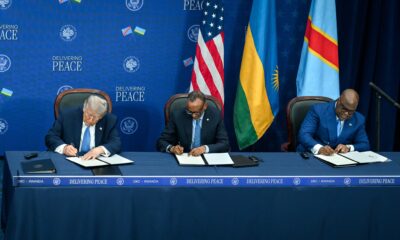
 USA13 hours ago
USA13 hours ago
 Health24 hours ago
Health24 hours ago
 TCI News22 hours ago
TCI News22 hours ago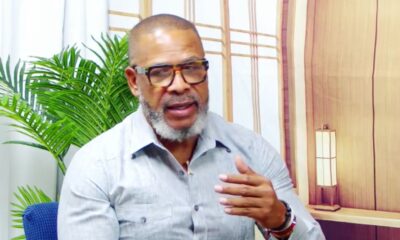
 TCI News23 hours ago
TCI News23 hours ago










